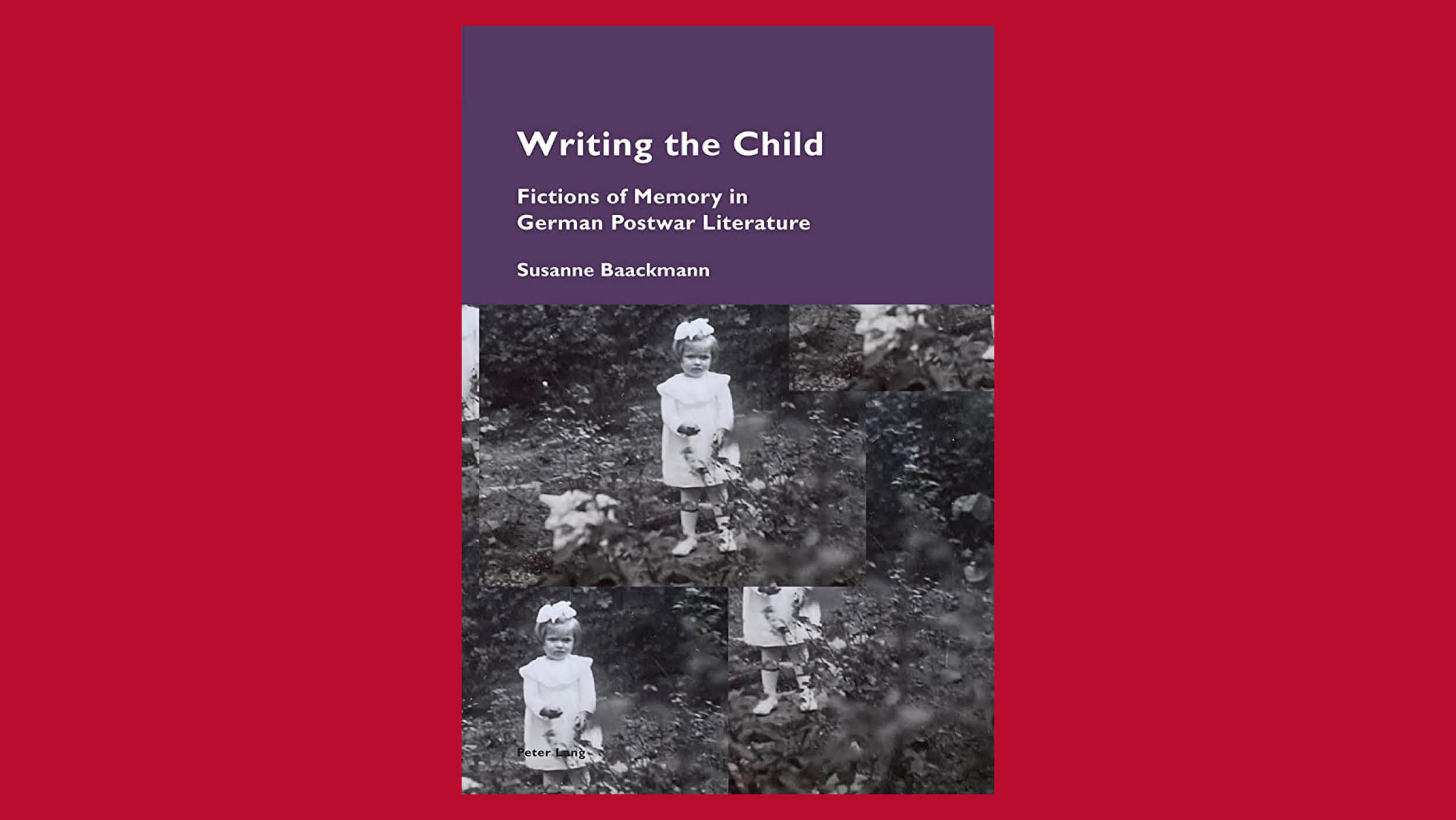UNM researcher looks at literature to gain understanding about the German Children of War
April 4, 2023 - Talullah Begaye
 In her new book, Associate Professor of German Studies, Susanne Baackmann, proposes a new way of thinking about the adage that history repeats itself: history does not repeat itself, but it rhymes. Through Writing the Child. Fiction of Memory in Postwar German Literature, Baackmann explores the role of personal and collective responsibility in silence and memory through the lens of Germans who experienced World War II as adults, as children, and as the generation born after the war in works of fiction.
In her new book, Associate Professor of German Studies, Susanne Baackmann, proposes a new way of thinking about the adage that history repeats itself: history does not repeat itself, but it rhymes. Through Writing the Child. Fiction of Memory in Postwar German Literature, Baackmann explores the role of personal and collective responsibility in silence and memory through the lens of Germans who experienced World War II as adults, as children, and as the generation born after the war in works of fiction.
“Silence and memory keep reconstituting each other,” Baackmann said. “At times illuminating painful parts of history.”
Writing the Child examines the connection of memory to both remembering and forgetting as a collective. Baackmann’s research picks up in the 1990’s, filling in the gaps of previous decades’ silence and the passing down of memory. The “war child generation”, often referred to as the “Silent Generation,” was silent as a response to feeling both traumatized and guilty. The generations that followed them have felt the ripple effects of this by vicariously experiencing the war through their parents in a more open and sober way.
 Baackmann looks deeper into the complexity of the societal structures of historical violence as a means of filling in gaps. The literature Baackmann uses in her research brings the stories of silence back to life through narratives from the perspective of a child and the different roles taken in World War II. The texts offer complex and insightful witnesses to the Nazi past that use the power of story to speak to the audience.
Baackmann looks deeper into the complexity of the societal structures of historical violence as a means of filling in gaps. The literature Baackmann uses in her research brings the stories of silence back to life through narratives from the perspective of a child and the different roles taken in World War II. The texts offer complex and insightful witnesses to the Nazi past that use the power of story to speak to the audience.
“Literature, I believe, can be a powerful instrument of inquiry and objection,” Baackmann said.
During its curation, the book became a mixture of professional and personal due to Baackmann’s German family history, her father being born right before World War I and her mother being born two years after Hitler came to power.
As new memories emerged from Writing the Child, Baackmann was faced with the reflections of how the effects of war crossed generations, from her parents; to her; to her child. It became more imperative for her to contribute to the understanding of the intimate dialogue between the past and present.
“These stories precede us. They continue to shape us. While we may not control them, we nonetheless benefit from them,” said Baackmann.
Writing the Child is Baackmann’s third book. German Studies is one of nine languages represented under the Department of Language, Cultures, and Literatures.